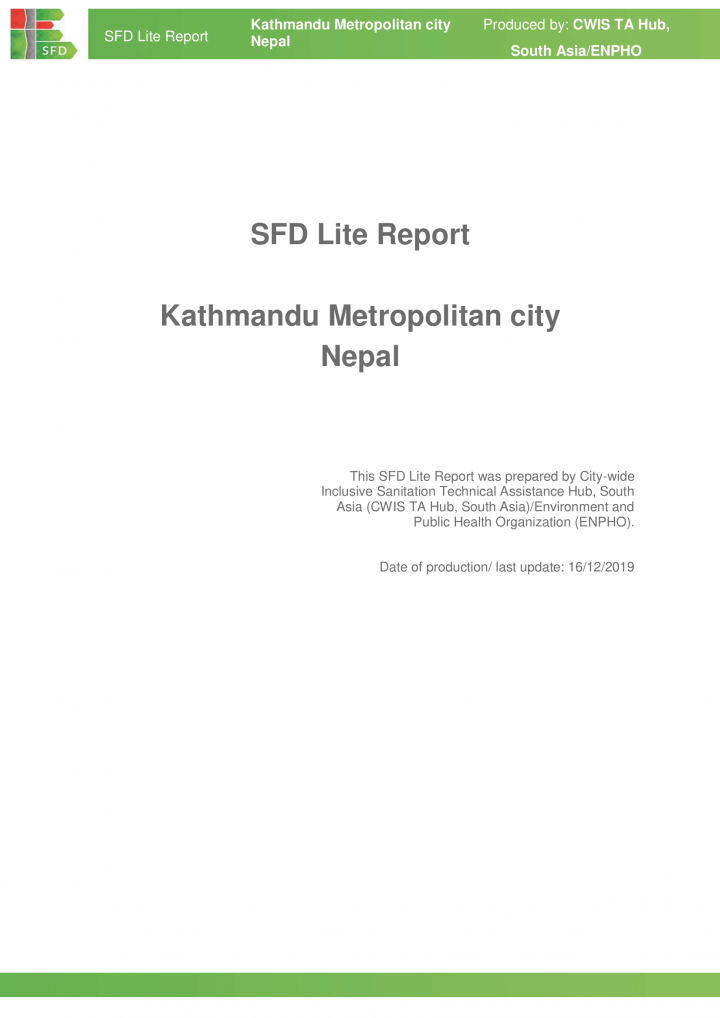SFD Lite Report - Kathmandu Metropolitan City, Nepal CWIS TA Hub & ENPHO (2019)
Kathmandu Metropolitan city is the eldest metropolitan city and capital of the Federal Democratic Republic of Nepal, located in Kathmandu district of Province no.3 of Nepal. The city consists of 32 wards with the total population of 1,347,011 people residing in 298,752 households. Majority of the population of Kathmandu Metropolitan city are dependent on sewer system, followed by lined tanks with impermeable walls and open bottom connected to centralized combined sewer and lined tanks with impermeable walls and open bottom, connected to soak pits. Mechanical emptying is prevalent in Kathmandu Metropolitan city. The mechanically emptied faecal sludge is transported by private desludging vehicle, consisting of a tank equipped with movable centrifugal pump on a truck
The wastewater and supernatant are transported through the combined sewer system. The capacity of the existing wastewater treatment plant is 32.4 MLD. The treated wastewater is released to Bagmati River, while remaining 94% of wastewater and emptied faecal sludge gets finally disposed untreated in Bagmati and other rivers of Kathmandu valley.
Bibliographic information
CWIS TA Hub & ENPHO (2019). SFD Lite Report - Kathmandu Metropolitan City, Nepal City-Wide Inclusive Sanitation Technical Assistance Hub (CWIS TA Hub, South Asia); Environment and Public Health Organization (ENPHO)
Filter / Tags
EnglishSFD General LibrarySFD Report
Downloads
SFD Lite Report - Kathmandu Metropolitan City, Nepal (2019)
Type: application/pdf
Size: 0.42 MB

